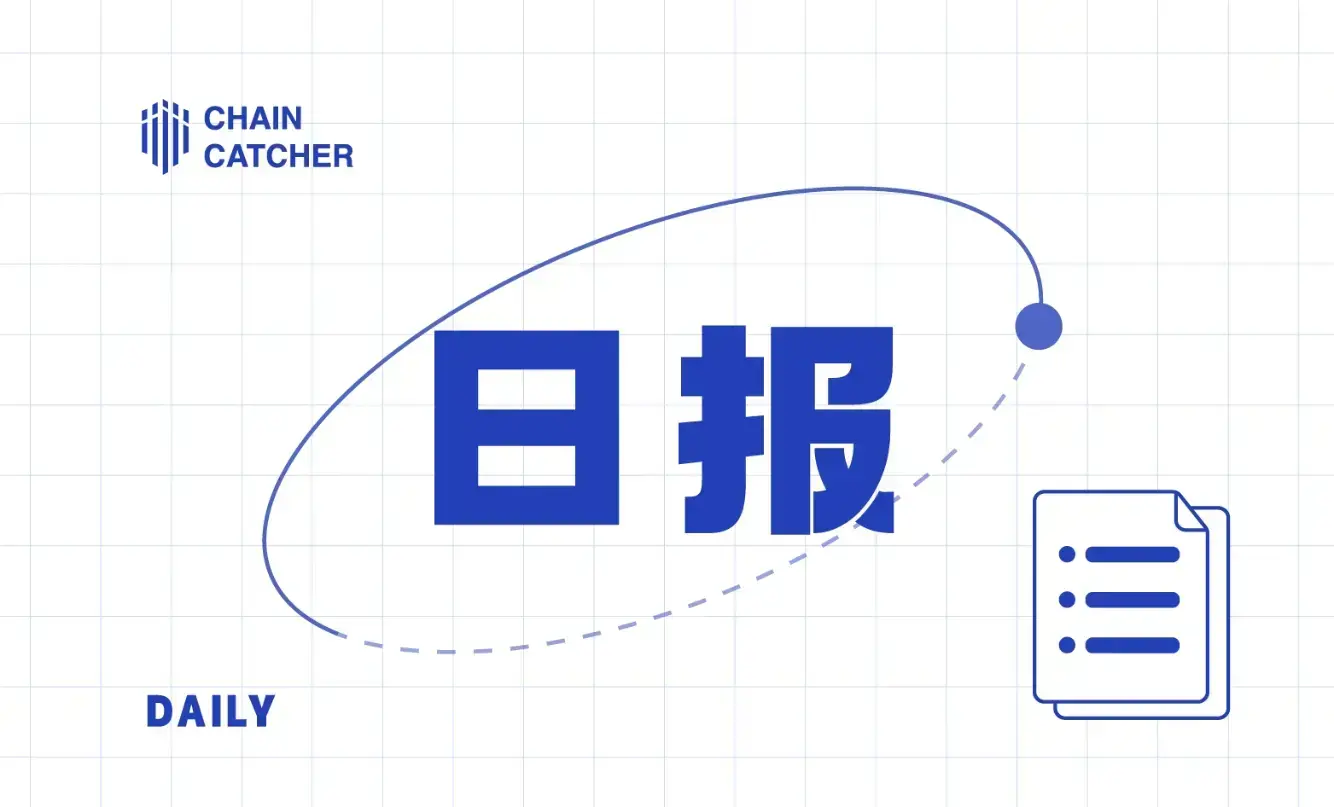Weekly Report | Since June, Bitcoin miners have sold over 30,000 BTC; Tether has now become one of the top three holders of short-term U.S. Treasury bonds globally; Italy will strengthen its monitoring of the cryptocurrency market, with fines of up to 5 million euros
Organizer: Luan Peng, ChainCatcher
"What Important Events Happened This Week (6.17-6.23)"
1. BlackRock, Grayscale, and MicroStrategy are the Top Three Companies Holding Bitcoin Globally
HODL15Capital listed the top ten companies holding Bitcoin globally as of June 22 on social media, including:
- BlackRock (IBIT): 305,614 BTC;
- Grayscale (GBTC): 277,067 BTC;
- MicroStrategy (MSTR): 226,331 BTC;
- Fidelity (FBTC): 167,375 BTC;
- Tether: 75,354 BTC;
- ARK 21Shares Bitcoin ETF (ARKB): 46,335 BTC.
(Source link)
2. Data: Bitcoin Miners Have Sold Over 30,000 BTC Since June
According to data from IntoTheBlock, Bitcoin miners have sold over 30,000 BTC (approximately $2 billion) since June, the fastest pace in over a year. The recent halving has led to a decline in profits, triggering this sell-off.
(Source link)
3. He Yi: Even if Binance Does Not List New Projects, Funds Will Flow Due to Meme Coins and On-chain Projects
In response to Binance's recent rapid listing of projects, which has caused market liquidity issues, Binance co-founder He Yi stated that the crypto market is a free market where liquidity and trading volume are shared across platforms. Even if Binance does not list new projects, these projects still exist, and funds will flow throughout the industry.
In addition to the unlocking of VC-backed projects, meme coins, on-chain projects, and Ponzi schemes will also divert funds. After the approval of ETFs, traditional financial markets will also divert funds directly into the crypto space.
She pointed out that some VCs do lead to inflated prices, but VCs generally have a 7-year lock-up period, with unlocking typically occurring one year after the TGE, so many VCs are also facing closures. Projects that secure large amounts of funding have more opportunities to navigate through bubble cycles, but the price and governance model are determined by the project parties, requiring in-depth analysis.
He Yi also mentioned that the rise of DeFi has increased market liquidity and freedom, making it harder for CEXs to set rules, which is the charm of the crypto market's free market. She reminded everyone to do their own research (DYOR).
(Source link)
4. All Crypto Exchanges in South Korea Are Collaborating to Establish Self-Regulatory Guidelines for Digital Asset Listings and Delistings
According to Chosun Biz, all virtual asset exchanges in South Korea are jointly working on the "Self-Regulatory Management for Virtual Asset Trading Support" plan. Previously led by five major Korean won market exchanges, self-regulation is now expanding to all exchanges to establish self-regulatory standards collectively. This plan is promoted by the Korea Digital Asset Exchange Alliance (DAXA) and aims to develop self-regulatory guidelines for virtual asset trading support through joint consultation. The "General Guidelines for Virtual Asset Trading Support Review" released by DAXA serves as the foundation for the new plan and is widely collecting opinions from various exchanges for improvement.
This collaboration involves not only the five major Korean won market exchanges but also about 20 cryptocurrency exchanges, marking the first comprehensive cooperation among virtual asset exchanges to establish a self-regulatory mechanism. The country's financial regulatory agency is also actively participating, providing advisory support and requiring exchanges to strengthen the review and supervision of listed assets.
The new self-regulatory plan is expected to be announced around July 19, coinciding with the implementation of the "Virtual Asset User Protection Act," as industry professionals are actively working to upgrade existing guidelines and enhance relevant regulatory content.
(Source link)
5. Tether CEO: Tether Has Become One of the Top Three Holders of Short-term U.S. Treasury Bonds Globally
Tether CEO Paolo Ardoino stated on social media that USDT is bringing dollars to hundreds of millions of people living in developing countries who need an alternative currency as their local currencies are rapidly depreciating. Tether has been investing its stablecoin reserves in U.S. Treasury bonds and has now become one of the top three holders of short-term U.S. Treasury bonds globally.
(Source link)
6. Vitalik: People Should Realize That "News is Propaganda" is Itself a Form of Propaganda
Vitalik Buterin pointed out that people should realize that the phrase "news is propaganda" is itself a form of propaganda, aimed at making social media users feel safe because social media is not "news," thus accepting social media propaganda more uncritically.
(Source link)
7. UK FCA Arrests Two Suspects in £1 Billion Illegal Cryptocurrency Trading
According to the FCA's official website, the UK's Financial Conduct Authority (FCA) and the Metropolitan Police have arrested two suspects accused of operating an illegal cryptocurrency business. The two individuals, aged 38 and 44, are accused of trading over £1 billion (approximately $1.3 billion) in crypto assets without registration.
According to the FCA's statement, the two suspects have been released on bail after questioning. During the investigation, the FCA and the Metropolitan Police inspected relevant offices and seized several digital devices from two residential properties in London. The investigation is ongoing, and the FCA has not disclosed further details.
Since January 2021, the UK has required all crypto asset service providers to register with the FCA to comply with anti-money laundering regulations. However, so far, despite over 300 companies attempting to register, only 44 have successfully obtained registration.
(Source link)
8. Italy to Strengthen Monitoring of Cryptocurrency Market, Fines Up to €5 Million
According to Reuters, Italy is strengthening its regulation of the cryptocurrency market and plans to impose hefty fines for market manipulation and insider trading. According to a draft document reviewed by Reuters, fines could reach up to €5 million (approximately $5.4 million). The document is expected to be approved by the cabinet later today. The draft proposes fines ranging from €5,000 (approximately $5,400) to €5 million for actions involving insider trading, illegal disclosure of internal information, or market manipulation.
(Source link)
9. Argentine President: Currency Will Compete Freely, There Will Be No Problem Using Bitcoin
According to Bitcoin Magazine, Argentine President Javier Milei stated, "Currency will compete freely, so if you want to use Bitcoin, there will be no problem."
(Source link)
10. Circle CEO: Unprecedented Optimism About the Future of Cryptocurrency
Circle CEO Jeremy Allaire expressed unprecedented optimism about the future of cryptocurrency on social media.
Jeremy Allaire stated that the development of internet technology demonstrates the power of open networks and software, and cryptocurrency is at a critical moment in driving social and economic development. The public's lack of comprehensive understanding of cryptocurrency development is actually a positive signal.
Additionally, Jeremy Allaire believes that public blockchain infrastructure has developed to the third generation, capable of supporting large-scale applications, and that there are numerous innovative communities globally continuously improving these technologies. Although the adoption of cryptocurrency is still in its early stages, its potential is enormous, and significant changes are expected in the next decade. Therefore, he is confident about the future of cryptocurrency and believes that this technological wave will bring about greater changes than the previous internet revolution.
(Source link)
"What Great Articles Are Worth Reading This Week (6.17-6.23)"
By chance in 2016, LongHash Ventures CEO Emma Cui participated in a meeting with Vitalik at Singapore Management University, after which she decided to transition from traditional finance to crypto finance.
At the end of 2017, after receiving early funding support from Hashkey and Distributed Capital, Emma Cui officially founded LongHash Ventures with her former McKinsey colleague Shi Khai.
In the early days when funding was scarce, LongHash Ventures quickly faced fundraising difficulties during the bear market. "At that time, we tried to establish our first fund and were rejected countless times." It wasn't until the arrival of DeFi Summer that LongHash Ventures managed to survive the crisis and enter a growth phase.
Currently, LongHash Ventures manages hundreds of millions of dollars, with internal rates of return (IRR) for both funds reaching 40%-70%, and has invested in over a hundred Web3 projects, including Polkadot, Astar, io.net, Manta, Safe, Avail, and Puffer Finance.
Emma Cui believes that this bull market is still in its early stages. Besides the market effects brought by expectations for a BTC spot ETF, more catalysts are needed to initiate a true bull market.
2. “Ethereum Wins a Phase Victory in SEC Investigation, U.S. Regulatory Winds May Change”
Following the approval of the Ethereum ETF, Ethereum has once again won a phase victory in the public eye.
On June 19, Ethereum infrastructure development company Consensys announced on social media: "We are pleased to announce that Ethereum developers, technology providers, and industry participants have achieved a significant victory: the enforcement department of the U.S. Securities and Exchange Commission (SEC) has notified us that it is ending its investigation into Ethereum 2.0. This means that the SEC will not bring charges claiming that the sale of ETH constitutes a securities transaction."
This 14-month investigation has finally come to a close, resulting in a satisfactory outcome.
3. “Analyst: What Caused Altcoins to Underperform in This Cycle?”
In the cryptocurrency field, the issue of excessive decentralization of altcoins has gradually become prominent, becoming a core factor in their weak performance in this cycle. Through in-depth research, I found that this decentralization poses a serious threat to the overall health of the cryptocurrency market. Unfortunately, it seems that we have not yet found a clear solution to address this challenge.
The purpose of writing this post is to help more people gain a deeper understanding of this key issue that affects the future development of cryptocurrency. It will explain how we got to this point, why prices behave this way, and what the future path may look like.
4. “Do You Need to Donate to Claim Airdrops? Perhaps We Really Misjudged LayerZero”
From LayerZero's announcement of an airdrop snapshot in early May to the witch hunt, LayerZero has been under the spotlight for nearly two months, facing doubts, controversies, and disputes. After all this, the community thought they could finally claim the airdrop in peace, but LayerZero introduced a new claim mechanism called "Proof of Donation," requiring users to donate $0.10 for each ZRO to claim it.
Some believe this is another difficulty imposed by LayerZero on the community, but is it really so? The donation proof mechanism introduced by LayerZero may be a positive improvement to the current airdrop model.
In the past two months, although there have been constant hot events around meme coins and major project airdrops, the market has remained in a rather paradoxical state of gloom—the bear's howl seems faintly audible, while the bull's footsteps are elusive, with the market collapsing and restarting seemingly just a moment away.
This article aims to explore and sort out some hidden fermenting events in the market over the past two months while looking forward to the positive factors that may be overlooked in the coming months, and to outline the main storylines that may take center stage in the second half of the year.
6. “Simplicity is Key: How Will Ton Open the Door to the Long Tail Market of Web3?”
After more than a decade of development, the blockchain industry seems to have built up momentum and stands at the crossroads of large-scale application. From the DeFi summer to the NFT craze, from the explosion of P2E games to the rise of Web3 social, and now the hotly discussed concepts of "DePin" and "Web3+AI," there are countless ecosystems and projects in the industry, but none have successfully promoted to the general public.
Overall, aside from some biases present in mainstream society, the complex concepts of smart contracts, addresses, and private key management in blockchain and crypto applications are both innovations that distinguish them from traditional systems and shackles that are hard to shake off—while enhancing users' perception of Web3 elements, they often create a contrast of high barriers, costs, and poor experiences, which has become a major reason restricting the widespread adoption of Web3.
However, technological innovation has never been an overnight success in fundamentally changing the lives of ordinary people. It is certain that any emerging technology is not fully mature when it first enters the market and usually requires a long process of iterative upgrades. As the saying goes, "Those who do not remember the past are condemned to repeat it," by drawing on experiences and practices from related industries or fields, we can gain more ideas and creativity to inspire the Web3 industry.
7. “SEC Decides to End Investigation into Ethereum 2.0, Positive for ETH Spot ETF?”
In the cryptocurrency field, regulatory issues have always been a major concern. Recently, the SEC (U.S. Securities and Exchange Commission) has once again become the focus, this time targeting Ethereum 2.0. It is reported that the SEC has decided to end its investigation into Ethereum 2.0 and will not charge that the sale of Ethereum constitutes a securities transaction. This news has immediately sparked widespread attention and discussion in the cryptocurrency community.
From the past 14 months of investigation to now, Ethereum 2.0 has been a focal point of regulation. However, a letter sent by Consensys on June 7 requesting the SEC to confirm that the approval of the Ethereum spot ETF was contingent on Ethereum being classified as a commodity ultimately prompted the SEC to decide to end the investigation. This decision marks a significant victory for Ethereum developers, technology providers, and industry participants, as well as an important shift in the regulatory environment.
As the news of the SEC's decision to end the investigation broke, the market reacted swiftly. On June 19, Ethereum-related projects such as LDO topped the gainers' list. On June 20, projects within the Ethereum ecosystem, including ENS, LDO, RPL, Pendle, CVX, MOG, and PEPE, also surged, reflecting the market's positive attitude towards this news.
8. “Arthur Hayes Blog: Japanese Banks Selling U.S. Treasuries Boosting New Cryptocurrency Bull Market”
Against the backdrop of global economic turmoil and fluctuations in financial markets, Hayes delves into the challenges faced by the Japanese banking system during the Federal Reserve's interest rate hike cycle, as well as the profound impacts of U.S. fiscal and monetary policies on global markets. By analyzing the foreign exchange hedging strategies of Japan Agricultural, Forestry and Fisheries Bank and other Japanese commercial banks in their U.S. Treasury bond investments, the article reveals the reasons these banks have had to sell U.S. Treasuries amid widening interest rate differentials and rising foreign exchange hedging costs. Hayes further discusses the role of the FIMA repo mechanism and its impact on U.S.-Japan financial relations, predicting its key role in maintaining market stability. The article ultimately calls on investors to seize investment opportunities in the crypto market under the current circumstances.
9. “Pay to Earn for Airdrops: This Airdrop Has Introduced a New Twist”
Good news, the ZRO airdrop can be claimed.
Bad news, it requires payment to claim.
Previously, there were market doubts about the insufficient quantity of LayerZero airdrops, with many expressing that despite their hard work interacting, the amount seemed inadequate; the feeling of "insulting airdrops" arose.
And this insult seems to have come twice.
On the evening of June 20, LayerZero officially announced that the ZRO airdrop could be claimed, but this claim is not free:
Users must donate $0.10 in USDC, USDT, or native ETH for each ZRO to claim the ZRO tokens.
LayerZero calls this a new claim mechanism named Proof-of-Donation, which will donate up to $18.5 million to the collective funding mechanism Protocol Guild for Ethereum developers.
10. “Small Cost Investment, Huge Financing Social Protocol Farcaster Interaction Strategy”
As LayerZero launched its token amid criticism, the much-anticipated airdrop wave has come to a pause. The mouse warehouse of Zksync and LayerZero's witch hunt have also dampened players' spirits, with some veteran players stating that the golden age of airdrops is over.
However, as long as the market exists, new projects will always bring continuous opportunities.
The four kings have ended, but there are still three new horses—Monad, Bearchain, and Farcaster.
All three have recently disclosed massive financing, presenting numerous opportunities. Recent rumors suggest that Farcaster may issue a token, significantly increasing its interaction weight and making it one of the must-claim projects. Monad and Bearchain interaction tutorials have been published by Tech Flow, and today I will guide you through interacting with the recently announced high-potential social project Farcaster.


















